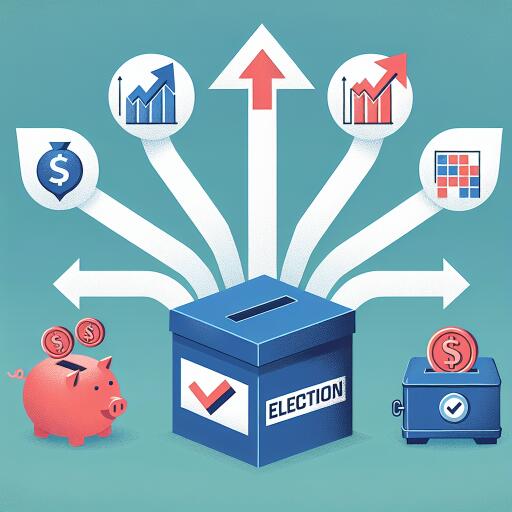4 Ways Elections Can Affect Retirement Savings
As the 2024 presidential election approaches, it’s easy to get swept up in political debates and predictions. However, it’s crucial not to let the political climate disrupt your financial planning, especially when it comes to retirement savings. According to a survey by Voya Financial, a significant portion of working Americans are postponing their retirement savings decisions until after the election, with many believing the outcome will severely impact their ability to save. This approach, however, could be detrimental to your financial future. Here’s how elections can influence your retirement savings and why it’s important to stay the course.
1. Delaying Savings Could Cost You
Postponing your retirement savings due to election uncertainty can have lasting impacts. Not only could you miss out on potential compound returns and dividends, but you might also find investment prices significantly higher when you decide to enter the market again. Despite the perceived importance of election outcomes, delaying smart financial behaviors, like saving and investing, could hinder your financial growth.
2. Election Year Market Performance
The performance of the stock market during presidential election years has been a topic of much speculation. A study by T. Rowe Price discovered that the S&P 500 averages an 11% return in election years, slightly lower than the 11.6% return in non-election years. This minor difference shouldn’t discourage investment, as presidential elections generally do not increase market volatility significantly. Staying committed to your investment strategy is vital regardless of the election cycle.
3. Potential Tax Policy Changes
Presidential administrations have the power to influence tax policies, affecting retirement taxes and strategies. Legislative changes, such as those seen with the Tax Cuts and Jobs Act of 2017, can have specific implications for various investment vehicles. Whether it’s extended tax benefits under one administration or potential tax hikes under another, being aware of how these policies could impact your investments is critical for long-term planning.
4. Post-Election Economic Climate
The year following a presidential election has historically seen a higher risk of recession. Research indicates that more than half of the cycles following elections overlapped with a recession period. While this might sound alarming, it underscores the importance of maintaining a steady, disciplined approach to saving and investing. Market conditions will always fluctuate, but a well-thought-out plan can weather political and economic uncertainties.
Conclusion
While presidential elections can influence the economic landscape, allowing them to dictate your retirement saving strategy could be a mistake. The key to building a resilient retirement nest egg lies in consistency—regularly saving, taking advantage of employer contributions, and diversifying your investment portfolio. Remember, while political cycles come and go, your need for a secure retirement remains. By focusing on what you can control and adapting as necessary, you can navigate through election years without jeopardizing your financial future.
